Pre-eclampsia: Test change for pregnant women could save lives
- Published
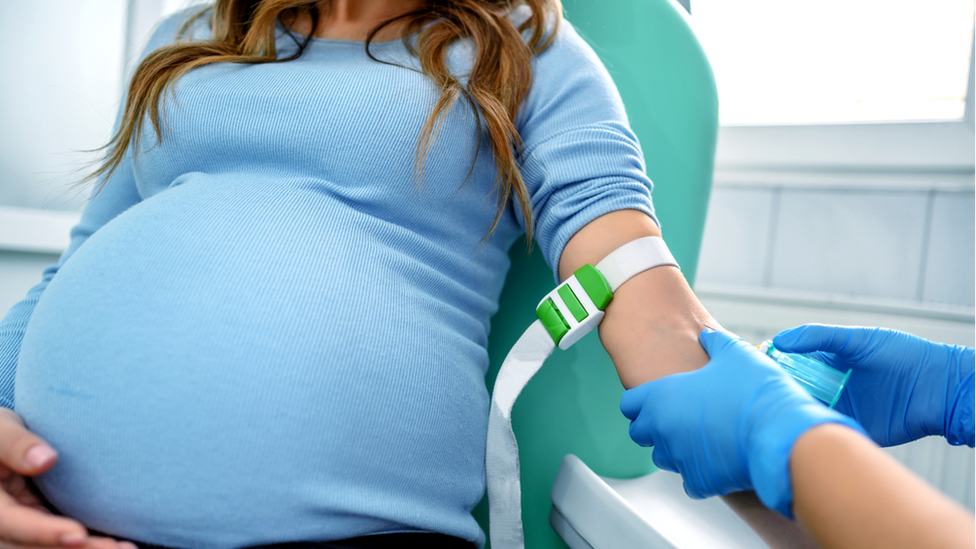
Pre-eclampsia is a condition that can affect pregnant women, which can be fatal if left untreated
A change in pre-eclampsia testing for pregnant women could help save lives.
The potentially-fatal condition affects around 6% of women, often during the second half of pregnancy.
The National Institute for Clinical Excellence (NICE) had recommended a test that could only rule out the condition, but now recommends more accurate tests that can diagnose cases.
The Welsh government welcomed the new guidance, but said routine screening had not been recommended.
Eleri Wyn Foxhall, 32, from Penygroes in Gwynedd had pre-eclampsia in 2020.
She welcomes the move, but called for women to be tested routinely.
She believes there is a general "lack of information" about pre-eclampsia, and wants more work to be done on early detection.
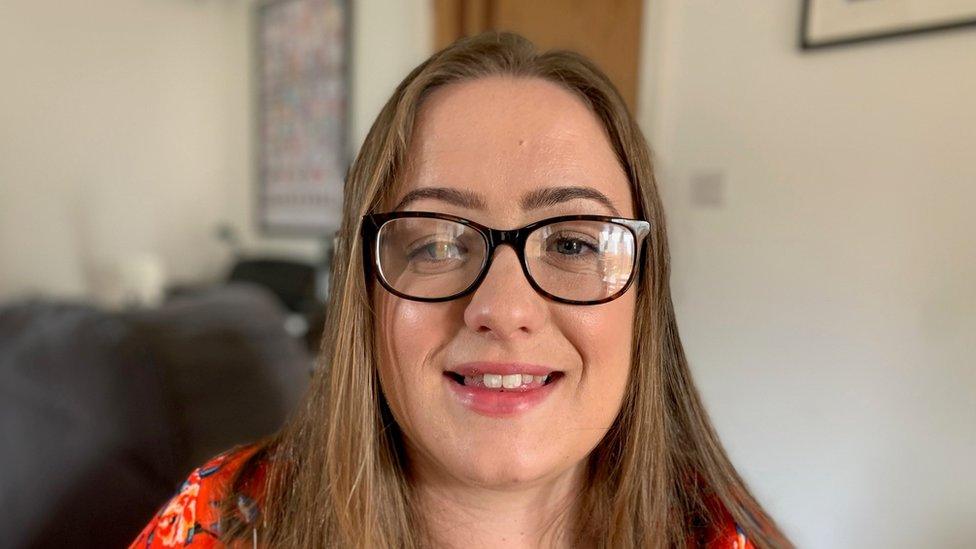
Eleri Wyn Foxhall said she was left "hysterically crying" during her early pregnancy due to pre-eclampsia
Ms Foxhall was 35 weeks pregnant with her son Tomos when she went for a routine midwife's appointment in summer 2020.
After the midwife took her blood pressure, she was immediately taken to hospital. Although she had never heard of the condition, she later discovered she had been viewed as an emergency case.
After being given medication to reduce her blood pressure, she was induced the following day. But complications meant she was eventually taken into theatre for an assisted delivery.
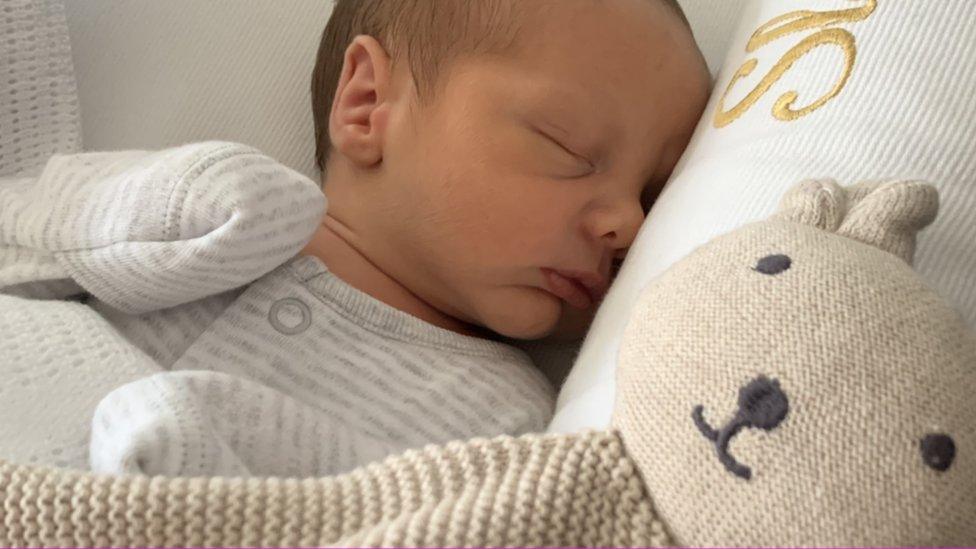
Ms Foxhall was diagnosed with post traumatic stress disorder (PTSD) months after her son Tomos was born

What is pre-eclampsia?
Pre-eclampsia affects tens of thousands of pregnancies each year, but can be managed if spotted early enough.
It is a condition that affects pregnant women, usually during the second half of pregnancy or soon after their baby is delivered - and early signs include high blood pressure and protein in their urine.
Mild pre-eclampsia affects up to 6% of UK pregnancies while severe cases develop in about 1 to 2% of pregnancies.
Although many cases are mild, it can lead to serious complications for both mother and baby if it is not monitored and treated.

During childbirth, Ms Foxhall experienced haemorrhaging and had blood transfusions.
Tomos was born with breathing problems and was immediately taken to a special unit.
"I was scared, especially because I didn't have my partner with me - because of Covid you weren't allowed anybody with you," she said.
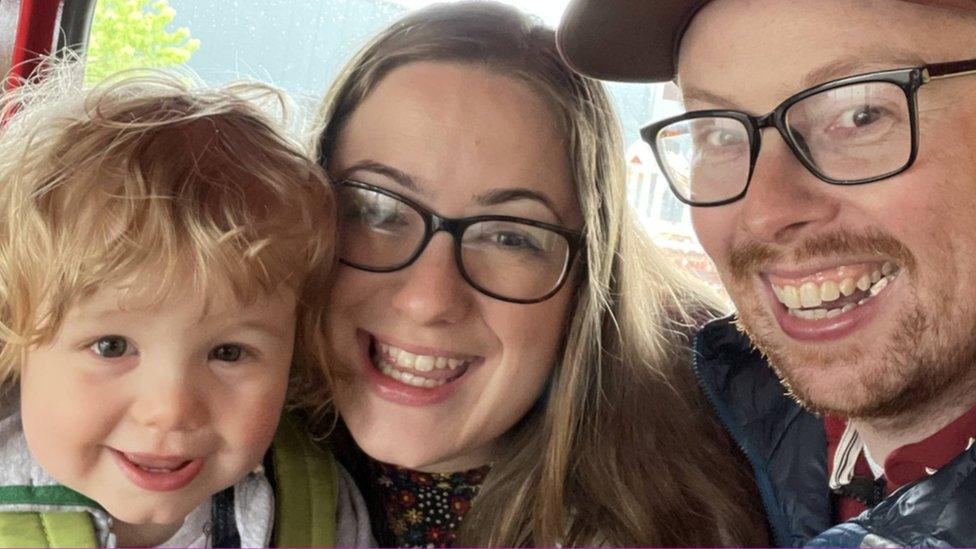
Ms Foxhall was in hospital alone due to Covid restrictions on visitors
"I was hysterically crying because I just kept thinking 'it's too early, five weeks early'. I was just worried about my health, my baby's health. I was just scared, petrified really," Ms Foxhall added.
"It definitely had an effect on me. I was actually diagnosed with PTSD a few months after Tomos was born.
"I'd say even nearly two years on I'm still struggling with the fact that it did happen the way that it did."
Paige Thomas says she had no idea what signs to look out for with pre-eclampsia
Ms Foxhall said NICE's new recommendation was a "step in the right direction", but questioned why it was not being rolled out as a routine test.
While tests have previously been used to rule out pre-eclampsia, it was not known if they were reliable enough to rule it in.
Four tests have now been given approval, each of which measures levels of placental growth factor (PlGF) in the blood.
PlGF is a protein that helps the development of new blood vessels in the placenta, and in women with pre-eclampsia, levels can be low.
'Extremely valuable'
Jeanette Kusel, director for scientific advice at NICE, said: "These tests represent a step change in the management and treatment of pre eclampsia.
"New evidence presented to the committee shows that these tests can help successfully diagnose pre eclampsia, alongside clinical information for decision-making, rather than just rule it out.
"This is extremely valuable to doctors and expectant mothers as now they can have increased confidence in their treatment plans and preparing for a safe birth"
Professor Basky Thilaganathan, spokesperson for the Royal College of Obstetricians and Gynaecologists, welcomed the new recommendation.
He said: "Earlier diagnosis by even a few days can significantly improve maternal morbidity/mortality associated with pre-eclampsia."
'This has to end'
Marcus Green, chief executive officer of charity, Action on Pre-eclampsia, said: "We're pleased to see this vital new NICE guidance which we hope will have a significant impact on expectant families.
"But it can't stop there - there is a postcode lottery that means some trusts are yet to take this up, and nationally implementation is patchy. This has to end."
A Welsh government spokesperson said: "UK National Screening advice does not currently recommend PIGF for routine pre-eclampsia screening.
"We welcome NICE guidance to support clinicians in diagnosing this condition and expect all health boards to follow the relevant NICE and UK National Screening Committee (UK NSC) guidelines.
"Diagnosing pre-eclampsia using blood tests may be appropriate as part of a clinical assessment."

CHALLENGING MISCONCEPTIONS: Life in Britain’s biggest special school
BORN DEAF, RAISED HEARING: What it means to live in two different worlds

- Published9 March 2021

- Published15 July 2022

- Published15 October 2021

- Published25 March 2022
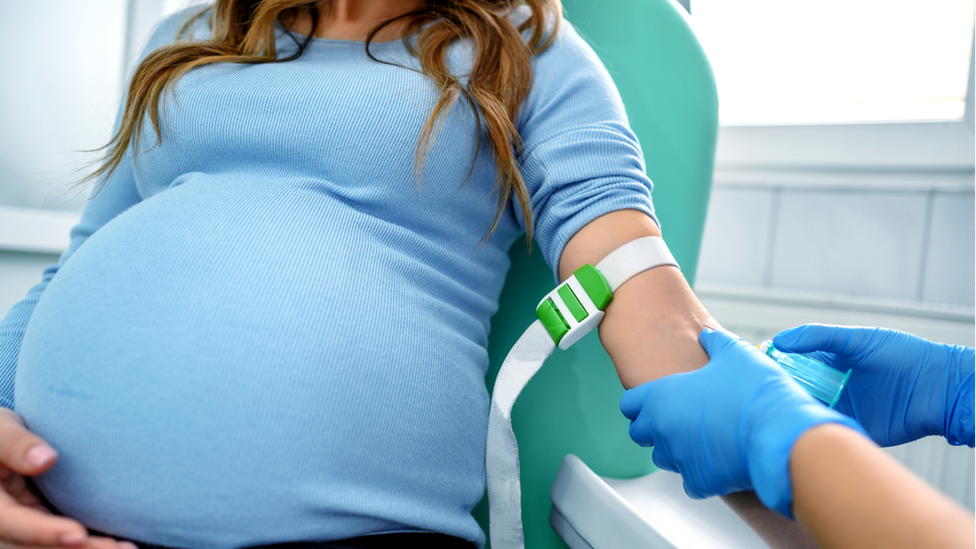
- Published16 October 2021

- Published22 July 2022
